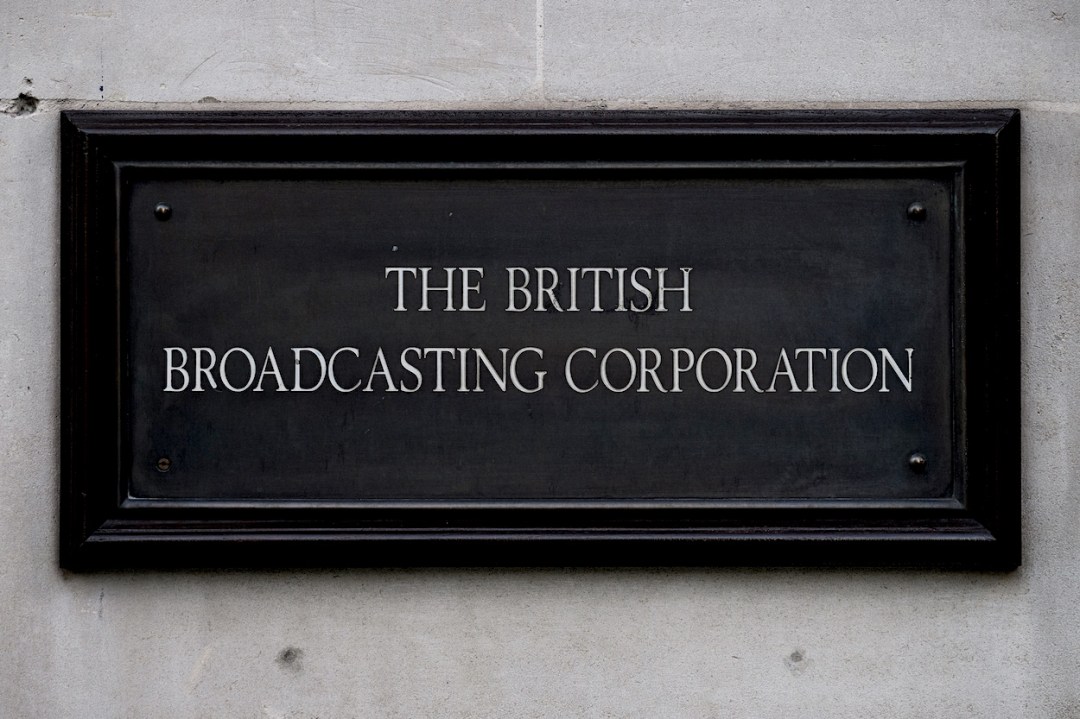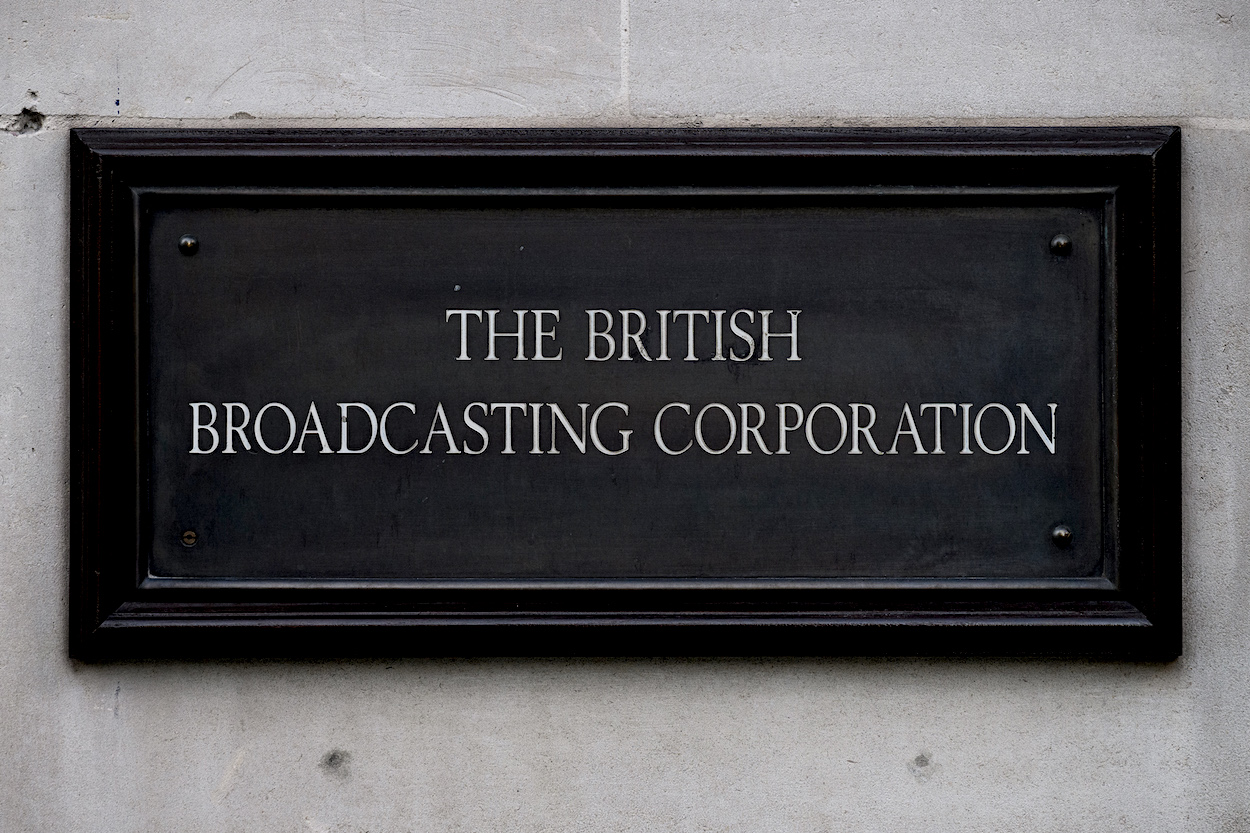One of the most grating and nauseating verbal constructions of our times – ‘Our NHS’ – has with grim inevitability began to evolve and expand. It was only a matter of time before someone or some organisation deemed it necessary to affix that possessive determiner to another state-run organisation, and you hardly need to guess which one.
‘A GB News presenter has said the BBC should hand “several million pounds” of licence-fee payers money to Donald Trump. We must defend our BBC from those who want to destroy it.’ So ran a post on Friday on from the official X account of the Liberal Democrats. Elsewhere, its leader Ed Davey almost used this much-dreaded construction in the Guardian this week, when in context of Trump’s threat to sue the BBC, he wrote of ‘our most precious British institutions’.
Don’t be surprised to hear more of ‘our BBC’ in the forthcoming weeks, as those who seek to defend the corporation at all costs become even more emotional and hysterical. It will be unfurled for the same reasons that devious and consoling platitude ‘our NHS’ began to roll off the tongues of left-wing people about ten years ago.
‘Our NHS’ is a crafty construction. Its immediate function is to improve the moral standing of those who utter it, to insinuate that they care more about this institution than you do. It has a far greater emotional resonance than ‘the NHS’, with overtones from the speaker that he or she passionately believes in the collective ownership of institutions, being wise to scheming evil capitalists who would like to wrench it away from ‘us’.
‘Our NHS’ conveys a bland sense of caring and sharing, and it’s no coincidence that the most simplistic and unreflective of leftists are apt to deploy the phrase, it being a particularly favourite verbal tic of Jeremy Corbyn, a man who speaks in cliches and prefabricated sentences.
It also expresses an unhealthy attitude. This is the tendency to sanctify, fetishise and preserve the National Health Service at all costs. The consequences of NHS-worship gruesomely came to pass during the Covid lockdowns of 2020-21, when its relationship with the general public was perversely inverted. No longer did the NHS exist to save the lives of people; people were ordered to behave in order that the NHS be saved.
The results of those years of NHS sanctification are on display today, what with junior doctors – having since elevated themselves to the lofty status of ‘resident doctors’ – now demanding a 26 per cent pay rise. And why wouldn’t they? You might do the same after having been lauded for two years for being a ‘hero.’
This isn’t to say I’m not hugely grateful, personally, to the NHS over the years, for having helped me in times of need, or that I would like to see it privatised. The same goes for the BBC, and many of those of a conservative disposition feel likewise. We don’t want to see it destroyed, but we do despair at what it’s become. It’s no longer held in wide affection because it’s badly lost its way. And It’s become remote precisely because it has sat comfortably on this collectivist ‘our’ mentality.
Those who run the BBC must surely now be aware of its fundamental problem
Just as NHS-worship has worsened its problems, engraining a sense of untouchability and unaccountability, the sanctification of the BBC will likewise further aggravate its chronic afflictions.
After a week of so much criticism, those who run the BBC must surely now be aware of its fundamental problem: its lack of awareness of itself. For decades it has trundled blithely along, its staff cocooned in their own left-liberal reality, believing in its own omniscience and impartiality without appreciating that many people outside think differently, and that those who do aren’t all simpletons, monsters or fascists. The establishment of BBC Verify in 2023 was the culmination of its combined monasticism and megalomania. No longer satisfied to impart truth, it now believed it could determine truth itself.
We – that is to say, many of us in Britain – think differently to what they in the BBC think. That’s why talk of ‘our BBC’ should be resisted. We don’t all think the same, and nor should we.








Comments